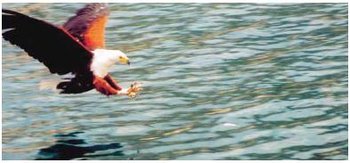Governance of water resources in Africa
Contents
Introduction
Governance is the central issue for water resources (Governance of water resources in Africa) , especially in the light of water scarcity and environmental change, and is critical for maximizing available opportunities. Threats to good management and regional cooperation include climate variability (with droughts over the past 30 years) because it results in a decrease in water availability and an increase in competition over water, political instability, and low priority given to water and sanitation in terms of investment in infrastructure and maintenance. The high rates of population growth and subsequent increased demand from the agricultural and domestic sectors for freshwater resources (Freshwater resources in Africa), have increased the pressure on the resources, even in areas like Central Africa (Central Africa and freshwater resources) with its relative abundance of water resources. There is the possibility that increasing water scarcity may lead to water-related conflicts.
Implementation and enforcement
The lack of, or weak, regulatory instruments, institutional frameworks and human capacity make realizing policy objectives a challenge. For example, in Central Africa, legislation for water management is not only weak but also difficult to enforce. In several countries, the implementation and enforcement of law and policy is a problem. In Cameroon, for example, the Environmental and Water Management Law (1996), which aims at protecting continental and maritime waters, is still awaiting its implementation.
Water resource management
Water-sector reforms have been constrained by various factors, including internal resistance from executives of institutions, the lack of political will, frequent changes in government, and dependence on development partners to find the resources for the reforms. Other common obstacles for effective water resource management are the fragmentation of water management administration among various institutions, the absence of mechanisms for coordination, inadequate institutional capacity and resources, and the lack of an integrated approach towards water management.
Some countries lack adequate organizational frameworks to achieve sustainable water management. Burundi, for example, has no water authority to coordinate water-related activities; management and conservation are shared among nine ministries, which tend to compete with rather than complement each other. The extended civil war – over 12 years – affected donor funding, financing and organizational and institutional development. This has resulted in a decline in water quality, delivery services and management capacity in the country.
One of the biggest challenges, that must be addressed if the targets of the Africa Water Vision and the Millennium Development Goals (MDGs) are to be met, is the lack of adequate human (technical and managerial), financial and material resources water authorities face, in particular as this relates to planning and implementing water and sanitation policies and programs. There is generally a lack of know-how and institutional "strength", particularly in the area of integrated water resources management (IWRM), and this has limited the success of water resource management initiatives. Africa is also faced with the problem of retaining trained and highly skilled personnel, as many leave to work in countries where financial rewards and research opportunities are offered.
Information generation and management
A key limitation at national, sub-regional and regional levels that is linked to inadequate financial and human capacity is the lack of adequate and good quality data on [[water resource]s]. Good quality data is a prerequisite for effective and sustainable water resource management.
Water-related data and information are often too general or of poor quality, due to inconsistencies or the period over which the records were compiled. Data gaps may also result from disruptions to management from conflict or lack of funds. In Uganda, for example, there is a paucity of data on the quality of the country’s surface and groundwater. In Ethiopia, there is a clear need for more detailed groundwater data, and in Central Africa, hydrometric monitoring networks need to be revitalized. Another obstacle is the shortage of facilities and of skilled people at various levels to collect and analyze the information and data for longer-term water management.
Knowledge gaps
There is generally an information bias towards water quantity against quality. Information on groundwater resources is also less detailed and accurate in comparison with surface water resources. More information is needed in the areas of climate variability and change, water pollution and environmental flow. More and longer-term time-series of data and analyses are also needed, and what still needs to be resolved is the often restricted access to databases and the limited sharing of transboundary information. Better governance systems which increase opportunities for participation, accountability and transparency may help correct this information bias.
Another area in which there is a lack of knowledge is in early warning and disaster management. Fluctuations in rainfall, pollution of water sources and so on, have implications for food security, human and livestock health, and general economic opportunity, and thus need to be carefully monitored. Early warning gives users the opportunity to avoid harm and find alternatives.
Further reading
- Chenje, M. (ed. 2000). State of the Environment Zambezi Basin 2000. Southern African Development Community/IUCN – The World Conservation Union / Zambezi River Authority / Southern African Research and Documentation Centre, Maseru/Lusaka/Harare.ISBN: 1779100094.
- GWP, 2006. Eastern Africa Regional Profile. Global Water Partnership.
- UNEP, 2006. Africa Environment Outlook 2
| Disclaimer: This article is taken wholly from, or contains information that was originally published by, the United Nations Environment Programme. Topic editors and authors for the Encyclopedia of Earth may have edited its content or added new information. The use of information from the United Nations Environment Programme should not be construed as support for or endorsement by that organization for any new information added by EoE personnel, or for any editing of the original content. |
